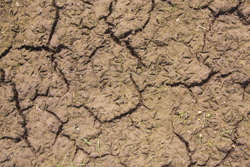Carbon reserves are becoming greenhouse gas producers
The ‘Carbon-climate-human interactions in tropical peatlands vulnerabilities, risks and mitigation measures’ (Carbopeat) project was designed to establish an international experts network to address emerging problems and produce explicit guidelines for policymakers and other stakeholders regarding tropical peat carbon optimisation in a sustainable context. The researchers focused on a number of topics in discussion meetings including the development of oil palm plantations, one of the main sources of carbon emissions. In addition, they encouraged the publishing industry to source paper from sustainable producers within the pulp and paper industry. They also addressed the role of fires in the global carbon cycle and the importance of improved water resource management for plantations. They investigated potential private carbon offset and trading mechanisms, market-based tools to limit GHG whereby a cap is set on allowable emissions and members must either make reductions or buy another firm’s spare credits in order for the total emissions to remain under the cap. Finally, they evaluated the implications of international protocols for tropical peatlands to prepare strategies and policy recommendations. Enhanced understanding of carbon dynamics in tropical peatlands has important implications for estimating rates of increase of GHG emissions and human-induced global climate change. Europe’s push for sustainable practices must include consideration of this vast wealth of carbon, whose destruction not only severely decreases the world’s carbon reserves while increasing GHG emissions but also threatens many species living in tropical peatlands. The Carbopeat project contributed significantly to our knowledge of carbon-climate-human interactions in these vulnerable areas and provided guidelines for future policies and negotiations of post-Kyoto agreements. The outcomes should help Europe foster sustainable practices worldwide that will protect our environment for future generations. Perhaps ‘think globally, act locally’ should be extended as global practices can have important local effects.

